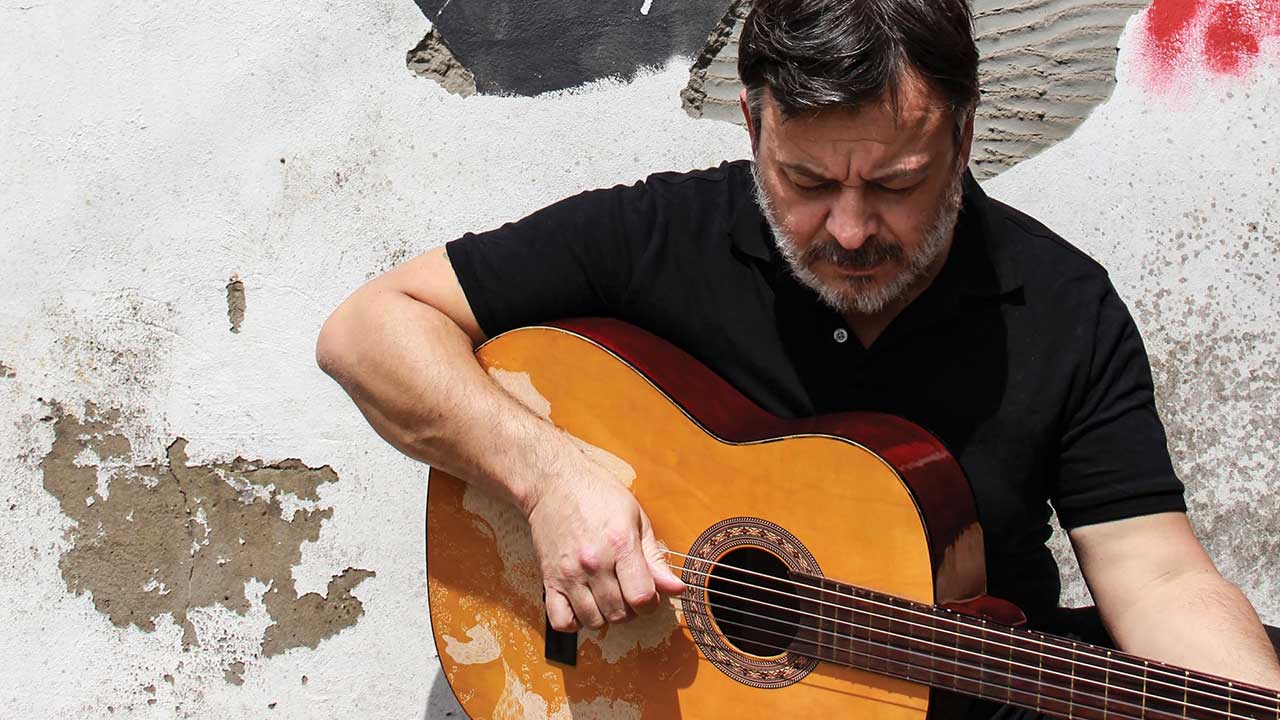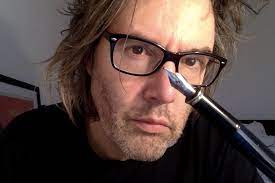It’s 14 years since James Dean Bradfield’s last solo album, The Great Western. While that record was partly bound up in ideas about the Welsh psyche, the Manic Street Preachers frontman travelled further afield for album number two, Even In Exile, working with playwright and poet Patrick Jones (brother of Manics' bassist Nicky Wire) to examine the life and work of Chilean activist and artist Victor Jara in what Bradfield describes as a “loose concept album”.
Jara was tortured and killed in 1973 under Augusto Pinochet’s bloody dictatorship. In 2018 eight retired Chilean military officers were sentenced to 15 years in prison for his murder.

Fourteen years between albums? Who are you, Def Leppard?
Ha. This one happened for exactly the same reason that the last one happened: because Nick [Wire] and Sean [Moore] said there was going to be a big break between Manics albums. I can’t do that, I’m an institutionalised musician – panic attack!
Subconsciously I started searching for something, and Patrick was doing writing exercises around Victor Jara, I think because his mother had passed away and his dad was ill. Some kind of emotional exercise trying to find something good to write about as everything was falling apart – a person that was good.
Jara has been celebrated in song before. When did you first hear about him?
That would have been in the song Washington Bullets by The Clash, mid-eighties. Then he’s in the One Tree Hill lyrics by U2. I’m a big Jack Lemmon fan too, and I was reading an old Rolling Stone about his film Missing, which was about the people that were disappeared in Chile post-Pinochet. There was a lot more about Jara in that.
You had Simple Minds dedicating Street Fighting Years to Jara. And then, out of the blue, he was being brought back to life in someone’s living room in South Wales, and that someone was Patrick.
Jara’s music often gets overlooked, in favour of his activism.
Strangely, I think Pat was sparked off by finding a second-hand copy of Jara’s Manifest album. I think we all know his story, but his music was new to me. It was beautiful, not what you expect from protest singing. It was much more feminine, exclusive and conciliatory than the kind of fist-aloft protest songs, it had a gentler heart. The musical voice fascinated me, which pushed me to do it.
How is it working with the other Jones boy, as opposed to Nicky?
Nick is famously structured in the way he works; he has files, he has boxes, he has subdivisions of departments that you don’t know exist. Pat is the complete opposite. Pat was writing in an experimental prose form, and poems, and a one-man play about Victor Jara.
I was just dragging it all together, and sometimes there would be reams and reams under one title, and I would have to edit a lot of it down. I was used to that with Richey [Edwards] on The Holy Bible to a certain degree, and it was the same here. Some of it was poetry, then falling into prose, which I think is what writers call ignoring discipline. Some of it was complete, though.
It’s the same with Nick, the ability for lines to rise off the page and separate themselves from the rest of it. Pat had some of the same things, but they arrive in a very different way. Pat arrives with the blaze of an eccentric professor, things falling out of files; Nick arrives with an alarming alacrity of organisation and order.
You wrote some very arresting lyrics for The Great Western. Why didn’t you do more on the new album?
I think I’m at my best when someone has done that work of writing something down for me. To have a finished lyric takes me quite a long time, and then I’ve got the process of having that let me discover a melody. Also, I couldn’t really figure out what I wanted to write about. I think you can force with music much more than you can with words. I think with novelists or playwrights there’s an element of séance, the spirits either come or they don’t.
You played almost all the instruments on the record, and worked in isolation too.
I knew the band’s studio was mine for a while. I just started hunkering down and building the tracks from the floor up. I kind of got my head around the double bass – it’s quite unnerving playing an instrument taller than you – and I would put that and the guitar down to a click and a vocal, sometimes I would do my own drums.
It was me jamming with myself, I would add synth, piano, slide, kept going until it was right, or just critical mass and then take stuff away. Also, I don’t really concentrate when I play guitar, it’s instinctive, which is not the case on piano or double bass, which made me feel like I was a different musician.
Is that why you’re doing things on this record we’ve never heard you do before, not even with the Manics?
I was listening back to the end of the record, and I was actually able to pick up bits of stuff that I was influenced by but wasn’t aiming for: Marble Index by Nico, bits of Meddle by Pink Floyd. I’ve always been a fan of Meddle. One of my favourite prog albums is The Welsh Connection by Man. The title track is really good. Johnny Marr sweeping in on The Boy From The Plantation. And it’s hard not to miss Rush on Seeking TheRoom With Three Windows. I wasn’t aware of it seeping in.
Maybe I’ve finally absorbed all my influences the way I should have, I don’t know, I think I’m happy with stuff falling through me now.
You’ve already said that this is never going to be played live. Why is that?
I like the private moment of the way it was created. Also, I don’t want to get in the way of the Manics stuff that is coming up next, because that is the most important thing to me. And you’re writing about Victor Jara, therefore you do have to be respectful to that, and I don’t want to have to say, alright, I’ll play Motorcycle Emptiness now, in among these Victor Jara songs.
It felt relatively precious to do the record, to use Pat’s words and to have that luxury of the privacy and to indulge myself, and I don’t know if I would want to spoil that, really.
Even In Exile is out now.

